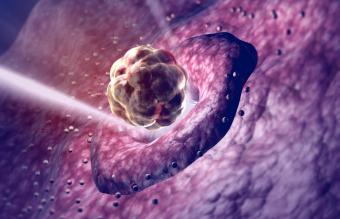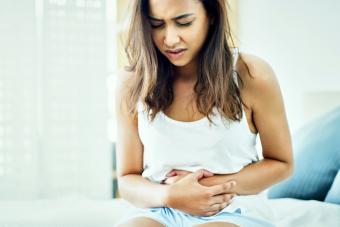
External vaginal itching can be very uncomfortable, especially during pregnancy. Your body is changing and adapting quickly during this time. You may experience vaginal itching in early pregnancy, during the second trimester, or even right before delivery.
In most cases, a vaginal itch during pregnancy is easily treatable. Understanding the potential causes can help you make sense of what is going on and help you to manage the condition. There are a number of causes and treatments for vaginal itching during pregnancy.
Causes of Vaginal Itching During Pregnancy
Vaginal itch during pregnancy is uncomfortable and may get more uncomfortable as the pregnancy progresses. Any number of problems ranging from allergic reaction to perfumes to gestational diabetes may cause vaginal itching while pregnant.
Vaginitis is the term used to describe any inflammation of the vagina. It has a wide spectrum of severity, ranging from mild itchiness to intense discomfort. External vaginal itching is called vulvovaginitis or vulvar itch. Vulvar itch can have various causes. It can also be very difficult to distinguish from an internal itch. People who experience this type of itchiness sometimes experience inflammation as well. Possible causes include but are not restricted to the following.
Yeast Infection
Yeast infections can cause itching down there during pregnancy. Hormonal changes have a dramatic effect on the body, including changes in pH levels in the vagina. The pH imbalance can lead to itchiness and give yeast, also known as candida, a chance to thrive. Additionally, if you struggle with gestational diabetes, changes in how your body processes sugar can lead to a yeast infection because yeast thrives in an environment that has higher sugar levels.
Yeast infections can cause internal irritation as well as an itchy labia in pregnancy. After the baby is delivered, the itch commonly disappears since the environment has less sugar as hormone levels balance.
Trichomoniasis and Other Sexually Transmitted Diseases
The sexually-transmitted disease trichomoniasis can also cause vulvovaginitis. Symptoms can come and go, and they may be especially noticeable during pregnancy. It's important to discuss a potential trichomoniasis infection with your doctor, since it may be associated with low birthweight and early delivery.
Other sexually-transmitted infections like chlamydia trachomatis and gonorrhea may cause itching, especially during pregnancy when your vaginal tissue may be more sensitive.
Bacterial Infection or Overgrowth
An infection called bacterial vaginosis can also cause vaginal itching during pregnancy. Your changing hormone levels can affect the pH of your vagina, allowing bacteria to grow more easily. You can also be more vulnerable to bacterial infection if you've recently taken an antibiotic. It's important to treat this condition during pregnancy, and your doctor can perform tests to determine if you have it.
An overgrowth of bacteria, such as lactobacillus, that already live in your vagina can also result in itchiness, especially during pregnancy. Lactobacillus sounds like a serious infection, but it is healthy bacteria that live in the vagina and the small intestine. During pregnancy, these bacteria can grow excessively, causing irritation.
Skin Irritants

Vaginal irritation during pregnancy is another common issue, and a simple irritant can cause external vaginal itching. Any element that does not occur naturally in the body has the potential to lead to an allergic reaction. Consider some common substances that could be irritating to the vaginal region:
- Abrasion - Rubbing and scratching can irritate the skin, and sexual activity can sometimes lead to skin irritation. If you have an active infection or intense itching, you may choose to avoid intercourse until the symptoms have waned and use lubricants when sexual activity resumes.
- Douches - Douching is a seemingly natural way to cleanse the area, but it can lead to an irritating pH imbalance. This increases the risk of developing a yeast infection or bacterial infection.
- Fragrances and dyes - Any product, such as perfumed or colored toilet paper, scented body wash, or feminine hygiene spray, can leave residue in the area and irritate the skin. The perfume and chemicals in these products offer fragrance, but they can lead to drying and itchiness.. This potential irritant typically causes external vaginal itching with no discharge.
- Soaps and bubble baths - Some personal care products can easily cause itchiness and irritation because they can disturb the pH levels in the vagina. The soap has a drying effect on the delicate skin and, if it isn't rinsed off completely, the vaginal area can become irritated.
- Wet or tight clothing - Synthetic clothing or workout attire that is wet with sweat can cause external vaginal itching. Wet bathing suits are another culprit, as the moisture can lead to irritation. Chlorine in pools is also a very strong chemical that may irritate the skin.
If you have eczema or another type of skin allergy, you may be even more prone to developing external vaginal itching during pregnancy when your skin is irritated.
Treatments for Vaginal Itch When You're Pregnant
In order to treat the itch successfully, it is necessary to rule out any possible infections including yeast infections or any other underlying medical conditions. Treatment of the cause is the best solution. Your physician may prescribe antibiotics, antifungals, or steroid creams to help manage vaginal itch. A topical anesthetic like lidocaine can alleviate skin irritation, but it is important to discuss using this approach with your physician during pregnancy.
Simple home remedies for external vaginal itching include avoiding the potential irritants that can lead to itchiness. Those who want immediate relief as well as preventative measures can consider some of the following approaches after talking to a doctor. Itching is among the pregnancy-related problems that should not be ignored.
Warm Bath
A warm bath may be soothing, but avoid using scented bath salts that may be irritating. Soaking in a warm (not hot) bath may relive itchiness, but it's important to talk to your doctor. You should avoid hot water completely.
Cold Washcloth
In some cases, a simple cold washcloth can offer relief. Use cold water to soak the washcloth and hold it against the affected area. Avoid scrubbing or scratching. Scratching may be very tempting, but it can irritate the area, causing tissue damage.
Enhanced Hygiene
Because your vagina may be more vulnerable to infection during pregnancy, it's extra important to stay clean down there. Always wipe from front to back.
Improved Air Flow
Stay cool by wearing cotton underwear, and make sure to allow the area to get some air for a few minutes every day. Bacteria and yeast may thrive in dark, moist places, so changing the environment may help.
Clear Communication
Clearly communicating any concerns about discomfort is important during pregnancy. Itchiness may not seem like a serious problem, but it is better to communicate these details whether you have a high risk pregnancy or not. Itching can be a sign of more serious -- and potentially dangerous -- conditions like gestational diabetes or an infection. This is especially important if you experience fever, vomiting, or abdominal pain. Your physician can help you manage vaginal itching with prescription and/or home therapies while keeping you and your baby safe.







